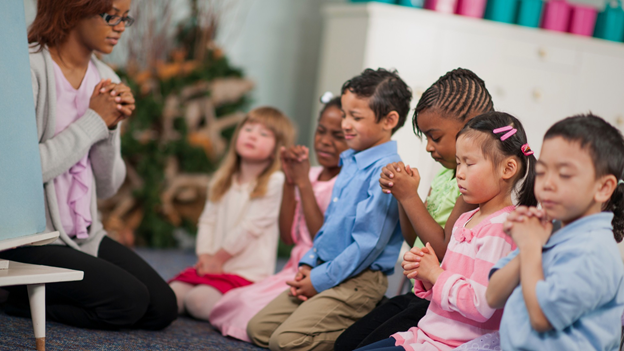Why We Don’t Talk About Spirituality in Early Intervention—And Why We Must
Posted in Disability Intervention
Why We Don’t Talk About Spirituality in Early Intervention—And Why We Must
Category: Disability
Topic: Intervention

A mother kneels beside her toddler’s crib and whispers a quiet prayer before therapy begins. The therapist sees it. She hears it, but she doesn’t mention it—not today, not ever.
In Early Intervention, we are trained to talk about routines, developmental goals, and strategies for participation. We are trained to be family-centered but there’s one topic that still causes hesitation, avoidance, even silence.
Spirituality.
Not religion, but that deep, inner current that helps families hold on through grief, celebrate milestones, or simply make meaning out of chaos. For many families, it’s not separate from care—it is care. So why don’t we talk about it?
In my research with EI practitioners, I asked a simple but loaded question: Does spirituality show up in your practice? The answers were honest and eye-opening. Many said they feel equipped to support family routines and values when they come up naturally, but avoid naming spirituality outright. Some felt it was too personal, some feared overstepping, and others said they simply didn’t know how.
As one clinician told me, “I draw a very big line between what I say to families and how I communicate with them… I never openly state any of that.”
That line—between personal belief and professional identity—is where many clinicians get stuck and it’s not their fault. Most of us haven’t been given the tools, the language, or the space to explore how spirituality might ethically and meaningfully fit within our scope.
I’ve felt this tension myself. I grew up in a deeply spiritual household. I’ve seen how spirituality anchors people through loss, uncertainty, and transition. And yet, in my training, I found myself unsure—hesitating to take the time to ask questions like, What gives you strength? What helps you get through the day?
Existing tools like the Routines-Based Interview or Eco-maps hint at religion, but they don’t explicitly address spirituality. Documentation guidelines rarely mention it so it goes unnamed, unmeasured, and unseen.
But families feel it. Especially during transitions—when services end, when a diagnosis is new, or when a parent is navigating their own grief. Spirituality shows up in how they make decisions, how they structure their day, and how they process hope or fear. If we don’t make room for it, we risk missing what truly matters to them.
What I heard over and over from clinicians was this: We want to connect, we want to build trust but we don’t feel equipped. The fear of imposing beliefs is real, but so is the cost of silence.
So, what can we do?
We can start by naming what we see. We can build a shared vocabulary that respects diverse beliefs while making space for meaning, purpose, and connection. We can develop tools and frameworks that invite—not impose—conversations about what sustains a family.
We can reflect on not just on what spirituality means to families, but what it means to us. Because therapeutic presence isn’t just about strategies, it’s about showing up fully, with openness and humility.
It’s time to stop skirting around spirituality in Early Intervention. It’s time to see it not as a threat to professionalism, but as a bridge to deeper care. If we claim to be family-centered, we can’t ignore the things that center families.
So, let’s talk about what gives them strength and let’s talk about what gives us strength, too.
Pranathi Meda, OTD (GUCEI ’25)
Resources:
Maley, C. M., Pagana, N. K., Velenger, C. A., & Humbert, T. K. (2016). Dealing with major life events and transitions: A systematic literature review on and occupational analysis of spirituality. AOTA Press. https://doi.org/10.5014/ajot.2016.015537
Premier Christian Academy. (n.d.). The Importance of Spiritual Growth in Early Childhood Education. Premier Christian Academy. Retrieved May 9, 2025, from https://www.premierchristianacademy.com/blog/the-importance-of-spiritual-growth-in-early-childhood-education/.
Oxhandler, H. K., Moffatt, K. M., Giardina, T. D., & Plante, T. G. (2019). Clinical Helping Professionals’ Perceived Support, Barriers, and Training to Integrate Clients’ Religion/Spirituality in Practice. Spirituality in Clinical Practice (Washington, D.C.), 6(4), 279–291. https://doi.org/10.1037/scp0000189
